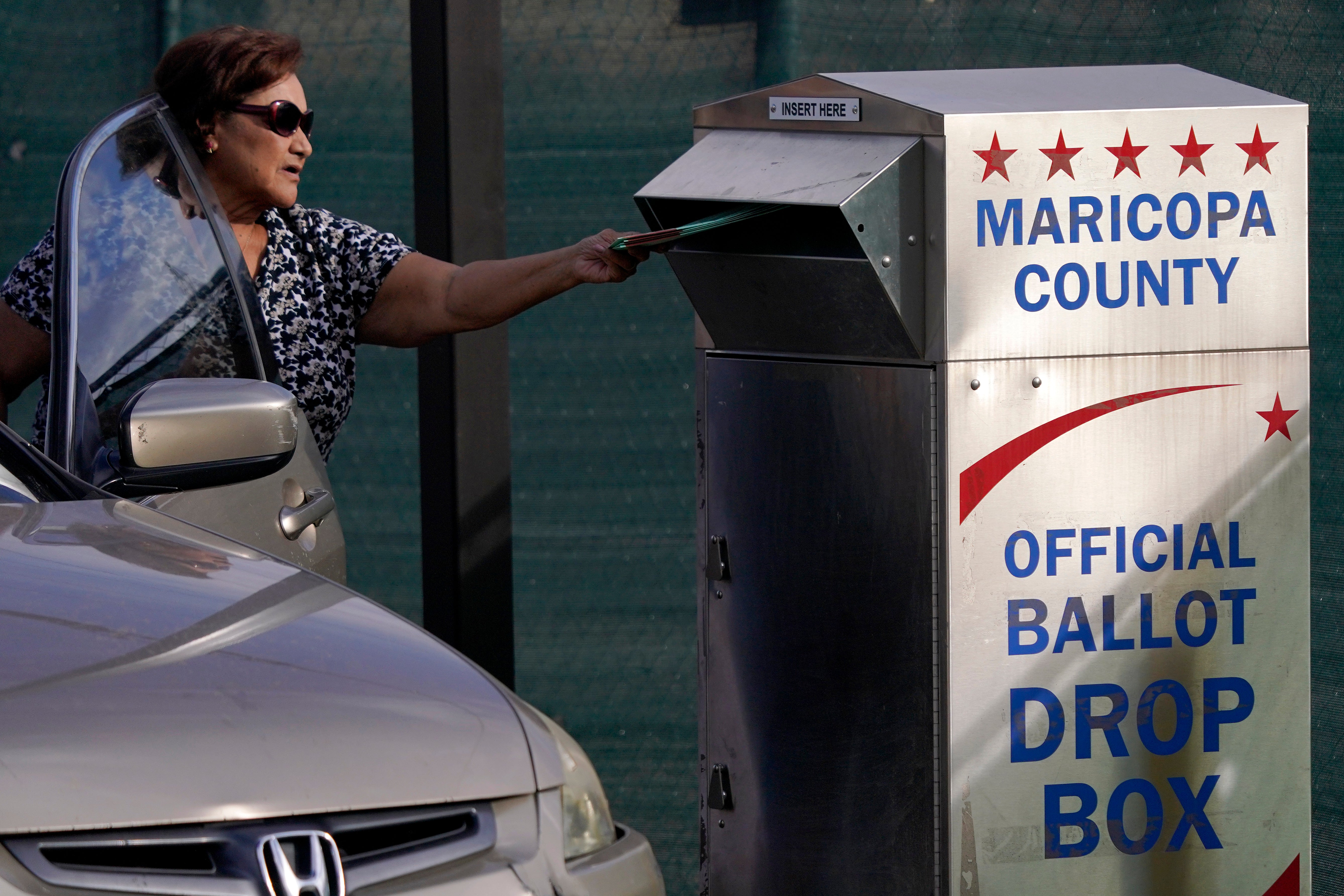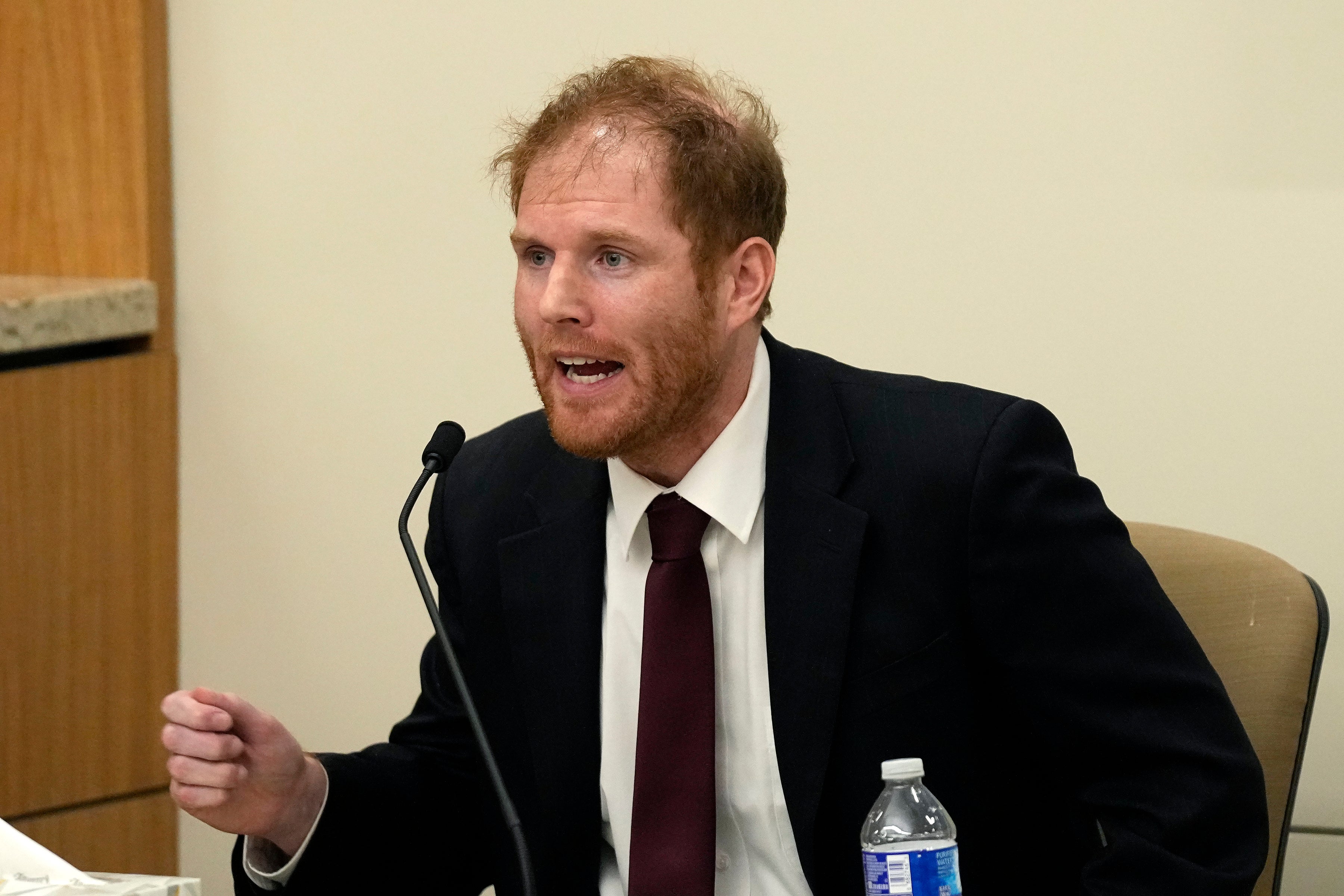Number of Arizonans impacted by glitch threatening voting rights climbs to more than 200,000
Democratic officials fear database error could give Republicans ammunition for bogus lawsuits to undermine election results
Your support helps us to tell the story
From reproductive rights to climate change to Big Tech, The Independent is on the ground when the story is developing. Whether it's investigating the financials of Elon Musk's pro-Trump PAC or producing our latest documentary, 'The A Word', which shines a light on the American women fighting for reproductive rights, we know how important it is to parse out the facts from the messaging.
At such a critical moment in US history, we need reporters on the ground. Your donation allows us to keep sending journalists to speak to both sides of the story.
The Independent is trusted by Americans across the entire political spectrum. And unlike many other quality news outlets, we choose not to lock Americans out of our reporting and analysis with paywalls. We believe quality journalism should be available to everyone, paid for by those who can afford it.
Your support makes all the difference.A data glitch in Arizona’s voter database has impacted voter registration information for roughly 218,000 people, or roughly one in every 20 voters in the state.
A 20-year-old coding glitch in a state database erroneously marked voters as having provided proof of citizenship when registering to vote, when it was unclear whether they actually did.
That error — discovered within weeks before Election Day, in a battleground state with more than 4 million voters — impacted roughly 79,000 Republicans, 61,000 Democrats, and 76,000 other voters, according to Arizona’s Democratic Secretary of State Adrian Fontes.
The state’s Supreme Court will allow impacted voters to cast their ballots to avoid mass disenfranchisement with such a limited window for due process as Election Day nears.
Monday’s discovery of a second tranche of impacted voters arrived a little over a week before early voting begins on October 9, and as Donald Trump and his Republican allies demand that all voters provide documented proof of citizenship, teeing up potential GOP challenges to election results in a state that was at the center of bogus election claims and conspiracy theories in 2020.

“The reality is these registrants have met the same legal standard as every other American who registers to vote: swearing under penalty of perjury that they are US citizens,” Fontes said on Monday.
“We can’t risk denying actual citizens the right to vote due to an error out of their control,” he added. “This issue is another example of why we need to fund elections, update systems and staff, and carry forward our proven tradition of safe, fair and secure elections.”
But the disclosure is likely to continue to fuel baseless allegations about widespread noncitizen voting, despite election officials across the country attesting that it is exceedingly rare, with mechanisms in place to capture those votes and prosecute offenders.
During a call about the issue last month, state officials feared that the incident would be weaponized by Republicans to cast doubt on the validity of elections in the state and provide election deniers a pretext to file more lawsuits challenging the outcomes.

The glitch appeared to affect voters who were issued driver’s licenses before 1996, eight years before a controversial state law required voters to provide proof of citizenship to be able to participate in state elections. Like voters in other states, those voters still had to swear under penalty of perjury that they are voting-eligible citizens.
But if those longtime Arizonans hadn’t updated their information since passage of the law, their proof of citizenship might not be on file.
After last month’s initial discovery of 100,000 affected voters, which was discovered by the office of Maricopa County Recorder Stephen Richer, Arizona’s Supreme Court ruled that impacted voters will still be allowed to cast their full ballots for federal, state and local elections and ballot measures.
“We are unwilling on these facts to disenfranchise voters en masse from participating in state contests,” Chief Justice Timmer wrote in a nine-page decision on September 20. “Doing so is not authorized by state law and would violate principles of due process.”

Join our commenting forum
Join thought-provoking conversations, follow other Independent readers and see their replies
Comments